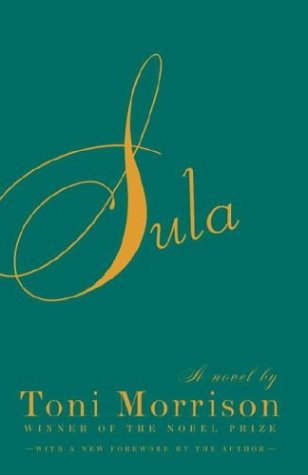The Bluest Eye was the first novel of Toni Morrison's I read (it was also the first novel she published), and it is still my favorite (although Sula gave it some serious competition). I read it for a high school English class, and I raced through it in one day. Then I went back and read it again, this time underlining and making notes, which was time-consuming because I had multiple notes on each page. As short of a novel as it is, each page has some revelation of prose and rhetoric, and it is still one of the best examples of language I've ever read -- it is not a novel that gets hung up in its own plot or context or narrative structure -- it comes across as simply words on a page, and those words just happen to be yielded in a very complex and powerful way. It demonstrates a complete mastery of writing that no one can compete with.
The Bookhive List is a weekly recommendation of my all-time favorite, must-read books.






